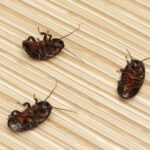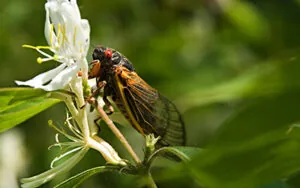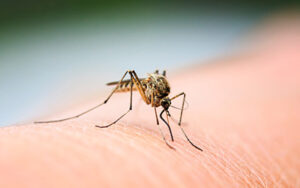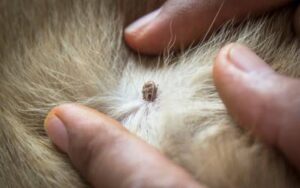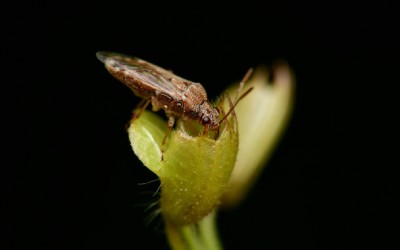
Kissing bugs may sound cute, but you’re not going to be affectionate toward these creepy critters. The reason for their nickname is that these minuscule pests are infamous for biting people in the middle of the night, usually near the mouth. Waking up covered in bites on your face is unpleasant enough but can kissing bugs actually be deadly? The pros at Russell’s Pest Control share the answer as well as advice on how to keep kissing bugs, and other insects, out of your home.
What’s a Kissing Bug?
Triatomine bugs, sometimes known as “kissing bugs,” are parasitic insects that feed on blood. They’re oval-shaped, dark in color, and normally reach lengths of between 1/2 and 1 inch. Although youngsters lack wings, adults have them and can fly. Their long, noticeable beak, which they employ for feeding, is their most distinguishing characteristic.
Kissing bugs are nocturnal so they typically hide close to animals or people who are sleeping. They tend to hide in small cracks or crevices. Although females may leave eggs behind, adults are mostly solitary and do not reside in large groups.
How Dangerous Are Kissing Bugs?
Kissing bugs are harmful, just like any other insect that feeds on blood. Although their bites are not extremely painful, they have the potential to spread infections. Chagas disease, which may have chronic consequences lasting a decade or more after the initial transmission, is the illness these insects are best known for spreading.
Chagas Disease: What’s That?
Typanosoma cruzi, a parasite that kissing bugs carry in their digestive systems after feeding on an infected organism, is the cause of Chagas disease. The parasite enters the bite wound through the feces that the kissing bug generally leaves behind after feeding; it does not spread while the insect is actively feeding. Chagas disease may be fatal, according to the Centers for Disease Control (CDC). Early symptoms of the illness include:
- Swelling around the bite
- Fever and exhaustion
- Body pains
- Swollen eyelids
- Headaches
- Loss of appetite or nausea
- Swollen glands
Get medical help right away if you think you might have Chagas disease, or another sickness. If you think your pet has been bitten, call your veterinarian right away because other animals might also be afflicted with this illness.
How to Avoid the Kissing Bug
The last thing you want to see looking in the mirror in the morning is bite marks on your face from one of these bugs. The best way to avoid being bitten is to keep them out of your home. Here are some methods for keeping kissing bugs away:
- Seal any gaps around your foundation, windows, and doors.
- Repair or replace any old screens or weatherstripping around windows.
- Clear the area around your property of rubbish and keep your landscape tidy.
- Put your yard lights further away from your home’s foundation.
- Let your pets sleep indoors at night.
- Check sleeping areas frequently for bugs.
What To Do If You Find A Kissing Bug
Seeing a pest in your house is never fun, especially one as ominous as a kissing bug. The CDC advises against coming into contact with the kissing bug, despite the fact that your first inclination might be to squish it immediately.
Instead of smashing it, place a transparent container on top of it and trap it. After that, call an exterminator. They’ll be able to verify the species of bug and check your home for evidence of other pests.
Knoxville Pest Control Experts
Whether you’re worried that you have a kissing bug in your home or other pests, Russell’s Pest Control is here for you. We’ve been providing quality service at a fair price since 1971. Contact us today for your free inspection!
How Dangerous is the Kissing Bug? in Knoxville TN
Serving East Tennessee since 1971
